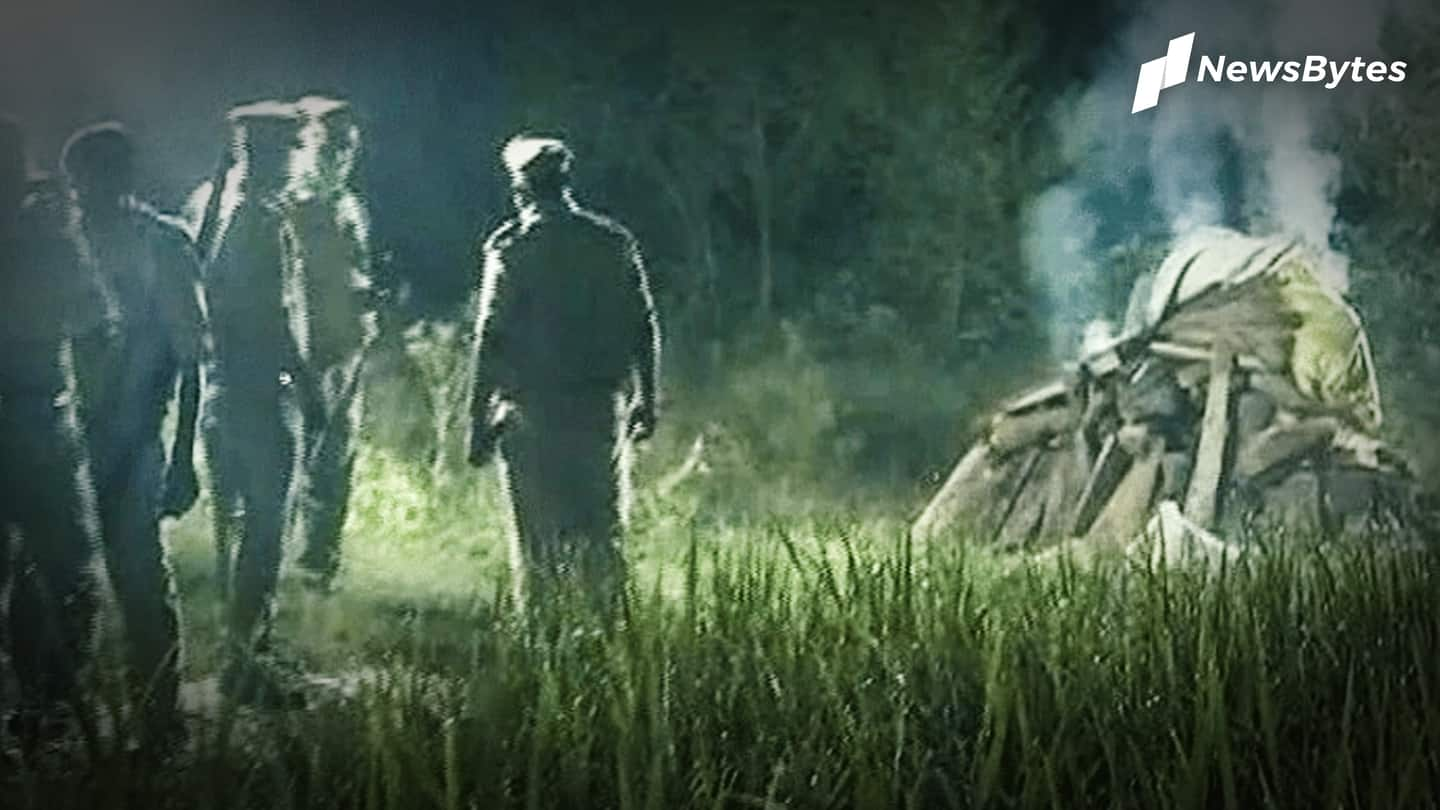
To avoid violence: UP government defends late-night cremation in Hathras
What's the story
The 19-year-old gang-rape victim in Hathras was cremated late at night to avoid large-scale violence the next morning, the Uttar Pradesh government told the Supreme Court in an affidavit on Tuesday.
The government, led by BJP's Yogi Adityanath, said it had credible inputs about impending "law and order problems," hence, the last rites of the Dalit woman were performed at that hour.
Here's more.
What happened
Brutally assaulted, the victim died in Delhi, protests followed
The victim, who was allegedly gang-raped by four men of upper-caste on September 14, was transferred to Delhi's Safdarjung Hospital, after receiving initial treatment in Aligarh.
She succumbed to her serious injuries on September 29 and subsequently, the roads adjoining the hospital witnessed protests.
Referring to this outrage, the UP government claimed it received information that the case could be "exploited."
Quote
Attempts were made to give case a communal color: UP
"The district administration had been receiving several intelligence inputs since the morning of September 29 on the manner in which the dharna had taken place at Safdarjung Hospital and the whole issue was being exploited and a caste/communal color was being given," the government said.
Details
Lakhs planned to arrive at village, claimed UP government
Divulging details about the inputs it received, the UP government said protesters from both communities/castes and supporters of political parties, were poised to arrive at the village in the morning and the situation could have sparked "major law and order problems."
The government also said restrictions were in place due to coronavirus and the Babri Masjid verdict, that came out on September 30.
Defense
"District administration convinced victim's family to perform last rites"
The UP government said since the post-mortem of the victim was conducted in Delhi, there could be no poor intention to "expedite the cremation except to obviate the political violent situation resulting from planned caste divide by certain vested interests."
According to the affidavit, the local administration "convinced" the bereaved family to perform the last rites, as per all rituals.
Affidavit
Notably, the state government isn't averse to CBI probe
The government sought to blame a section of print, electronic media, and some politicians for deliberately "misleading the public."
"The state government seeks indulgence of this court to direct the CBI to investigate into the incident and into a criminal conspiracy to spread caste conflict and instigate violence and incidents of propaganda by certain sections of media, political interests," the affidavit read.
Series of events
Affidavit contradicts officials' conduct; they had ignored family's impassioned requests
However, what the government submitted in SC is in sharp contrast to its conduct on the intervening night of September 29 and 30.
Media reports from that night showed the family pleading officials, seeking permission to take the victim home one last time. In fact, the vehicle, carrying her mortal remains, reached the cremation ground after resistance.
Her relatives couldn't attend the cremation, either.
Statement
Adjourning matter, SC sought an update on witness protection
Commenting on the case, SC said what the Dalit woman went through was "extraordinary and shocking."
While the matter was adjourned for next week, CJI SA Bobde said, "We want it on affidavit on how Hathras case witnesses are protected. We want you (SG) to ascertain whether the victim's family has chosen a lawyer. (sic)"
Solicitor General Tushar Mehta appeared for the UP government.